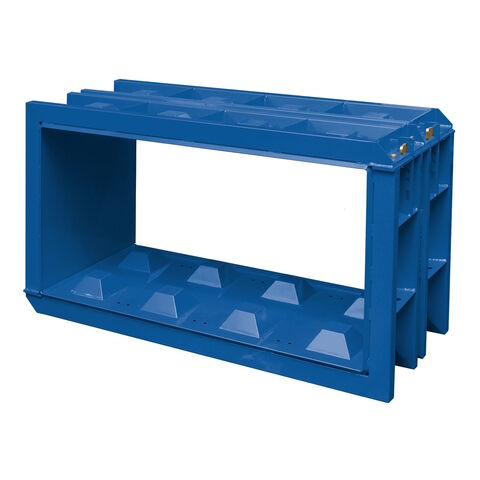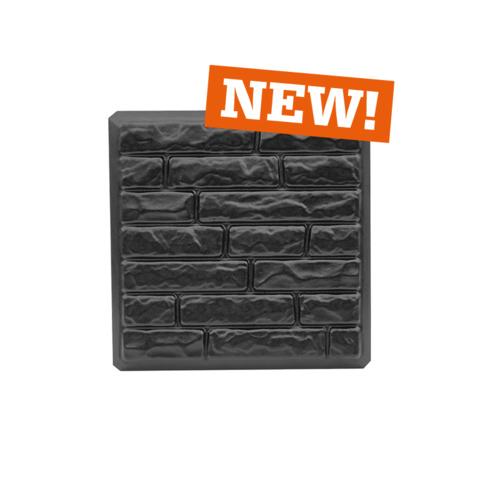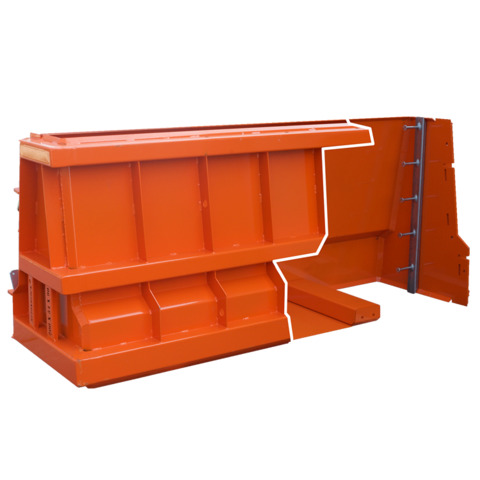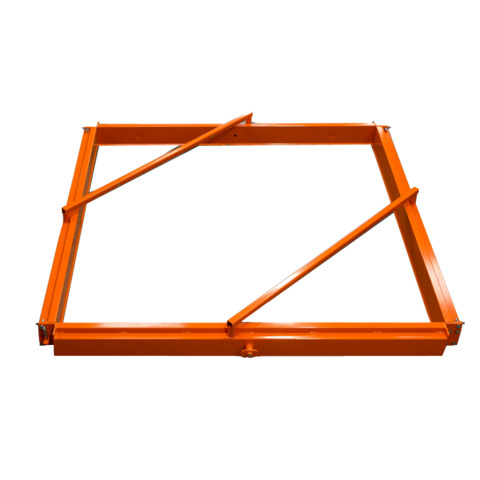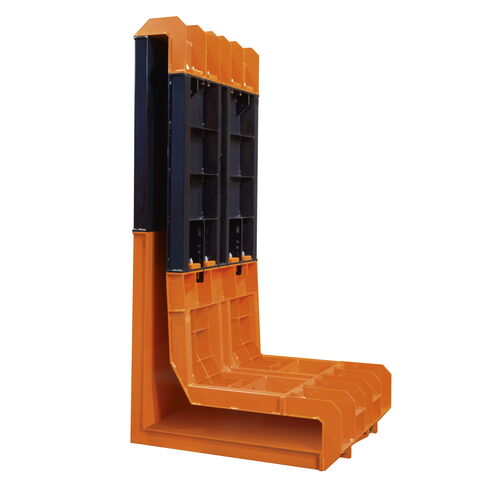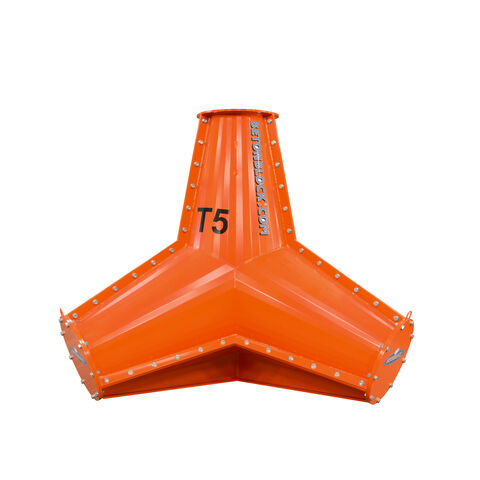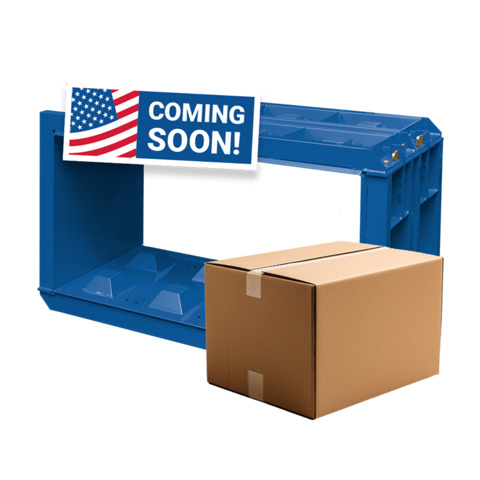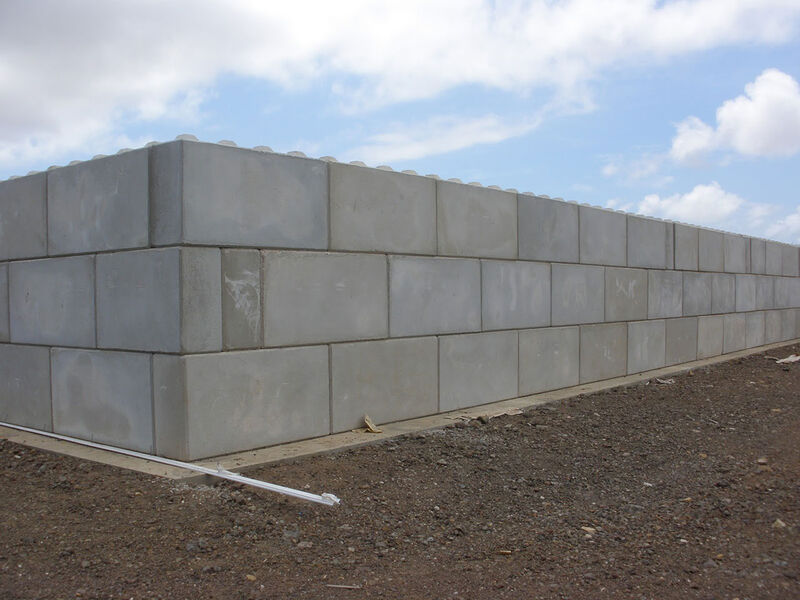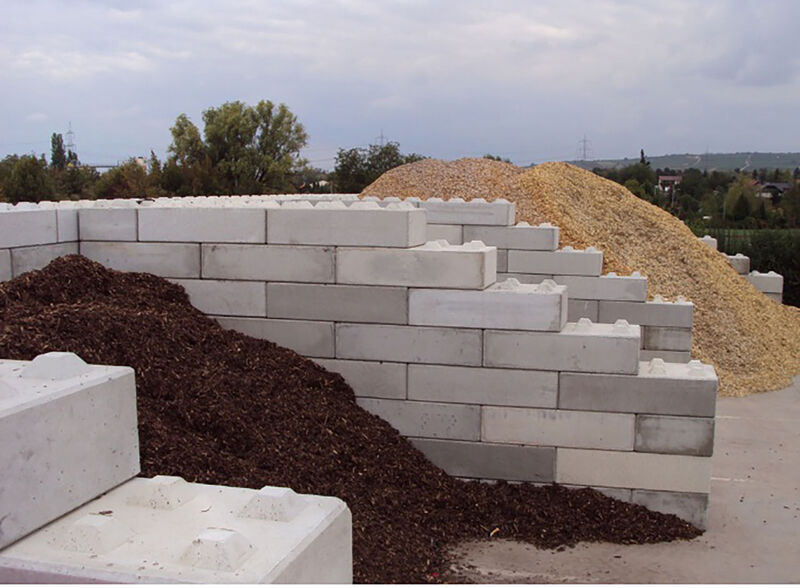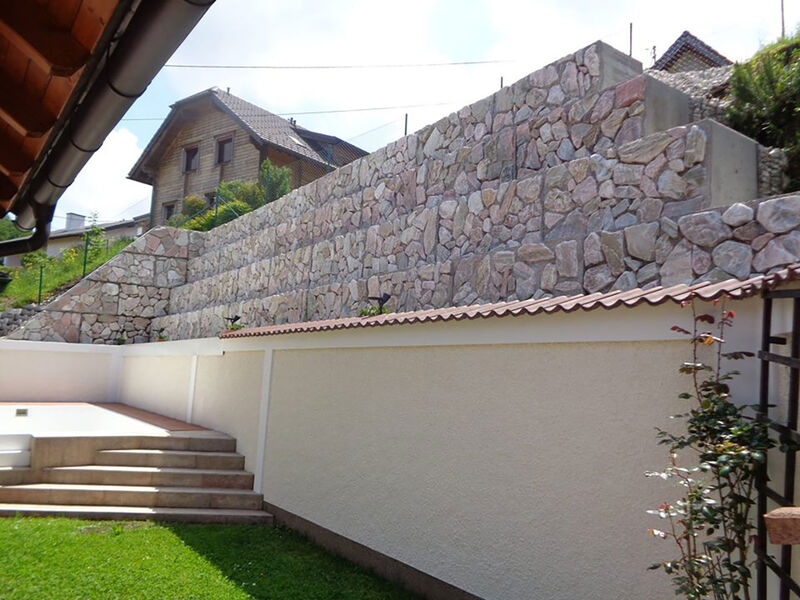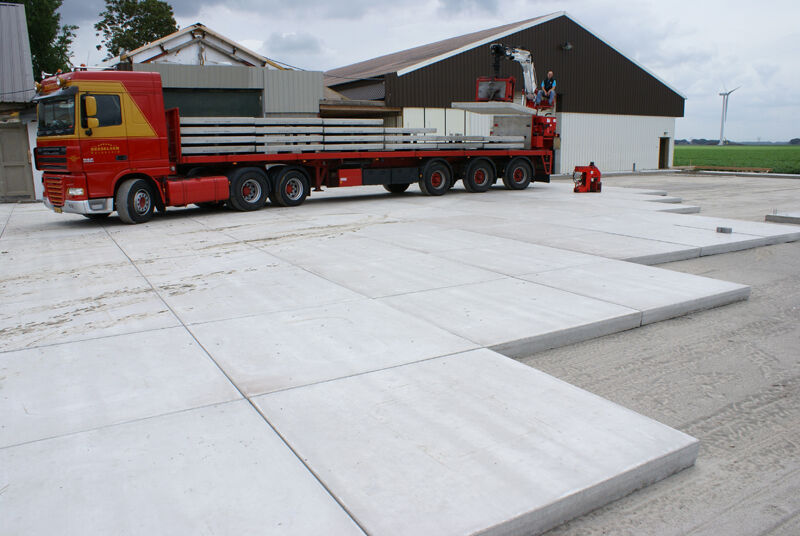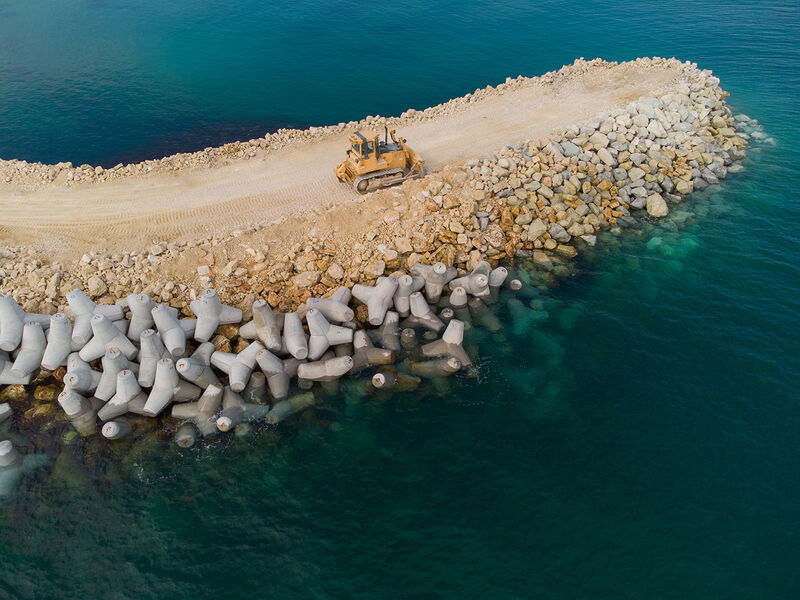Storage space made from concrete blocks or retaining walls
Concrete blocks and retaining walls are widely used to create storage areas in trench silos, for example. Bulk items such as sand, gravel, soil, waste, wood, stone, metal or plastic are stored between concrete blocks. Thanks to the studs at the top, the concrete blocks are easy to stack and highly stable. Retaining walls (L-shaped walls) are suitable for the temporary or permanent storage of manure, compost or silage. Finish off your concrete blocks or retaining walls with concrete slabs for an even surface. A few slabs is all it takes to cover a large area!
Barns and stables made of concrete blocks
Concrete blocks can be used to quickly erect a temporary or permanent barn or stable, making them ideal for sheltering animals such as sheep, cows, chickens, horses and ponies. Concrete blocks are also highly suitable materials for workshops or sheds. In no time at all, you will have a fully fledged workshop with plenty of space for a workbench and tools. What’s more, the newly built structure can also be used for storage or as a covered parking space for (agricultural) machinery, trucks and cars.
Landscaping and garden fencing
Concrete blocks are increasingly being used as partitions for gardens, private grounds, yards and larger plots. They’re ideal for safety, security and privacy, and combining concrete blocks of different sizes will even produce a highly aesthetic fence or partition. The government also uses concrete blocks for fences or partitions to prevent unauthorized access.
Concrete safety and security solutions
Governments regularly rely on concrete products for safety and security solutions, using them to fence off sites, as drive-in protection, bollards, road barriers and flood or coastal protection. Concrete blocks and L-shaped retaining walls are used along rivers and banks to hold back water. Concrete blocks can also be used as site partitions, for site security or to block access roads. Barriers are used during new road construction or road maintenance to protect road workers and pedestrians from passing traffic. Finally, tetrapods are perfect breakwaters and play a key role in shoreline protection.
Concrete slabs for site paving and access roads
Concrete slabs are ideally suited for site paving and access roads. Pouring asphalt is very expensive, while concrete slabs are a viable, better value alternative. Concrete slabs are used to build access roads, car parks and sites of various natures. In the industrial and agricultural sectors, heavy equipment drives across sites all day long, requiring a sturdy, durable surface. The slabs are also a great way to create a paved, straight and level floor in trench silos.

